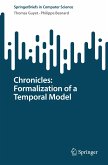This book explores the development, analysis, and interpretation of disability statistics, which is a very important component of official statistics. Disability, a concept with multiple definitions and dimensions, has become a very important policy issue in the United States and around the world. Proper understanding of the social problems associated with disability is influenced by how we conceptualize and define the disablement process, operationalize those concepts, collect and produce the data and finally, how we analyze and then interpret that data. The interplay of legislative definitions and theoretical definitions are explored as well as compared and contrasted, and the gaps or other problems with the current theoretical approaches to disability are exposed as is the patchwork nature of the legislative policy approach to solving those social problems. The author, a leading and well-known expert in the field, provides suggestions on how to move from definitional concepts to objective measurement and data collection to appropriate policy. The use of the measures in the analysis of important policy questions is explored, and the cacophony of prevalence estimates is examined for a better understanding of what they represent. In addition, suggestions for improvement and standardization of core disability measurement are provided. A rapidly spreading Disability Studies curriculum has been emerging at universities in recent years. While these programs mix in social science perspectives, frequently viewed through service provision lenses, they are very weak on an examination of the theoretical, definitional, and measurement approaches to the subject, which are important elements of the social definitions of disability and its place in the social structure. The sociological perspective is essential for understanding and using the available data on disability appropriately. As such, this book contributes to the sociological literature by introducing and examining disability as an important basic demographic characteristic that sociology and social science tend to overlook, exploring its interaction with other demographic characteristics, particularly gender, race, and poverty. In addition, the book clarifies the understanding of disability as more than a medical consequence of poor health or accidental injury, and updates the theoretical explanations of disability locating it squarely within proper sociological subject matter. With an emphasis on measurement and its explication, the book provides the policy arena with an examination of the historical definition and measurement of disability and follows the strands of definitions and interpretation that helps unravel the discord of disability measures used in the legislative and policy activities today.
Hinweis: Dieser Artikel kann nur an eine deutsche Lieferadresse ausgeliefert werden.
Hinweis: Dieser Artikel kann nur an eine deutsche Lieferadresse ausgeliefert werden.







